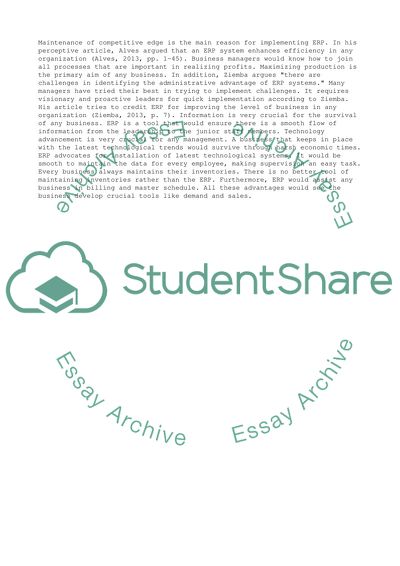Cite this document
(The Importance of Enterprise Resource Planning: Improving the Level of Research Paper, n.d.)
The Importance of Enterprise Resource Planning: Improving the Level of Research Paper. Retrieved from https://studentshare.org/business/1820890-implementation-of-enterprise-resource-planning-erp-in-public-sector-in-oman
The Importance of Enterprise Resource Planning: Improving the Level of Research Paper. Retrieved from https://studentshare.org/business/1820890-implementation-of-enterprise-resource-planning-erp-in-public-sector-in-oman
(The Importance of Enterprise Resource Planning: Improving the Level of Research Paper)
The Importance of Enterprise Resource Planning: Improving the Level of Research Paper. https://studentshare.org/business/1820890-implementation-of-enterprise-resource-planning-erp-in-public-sector-in-oman.
The Importance of Enterprise Resource Planning: Improving the Level of Research Paper. https://studentshare.org/business/1820890-implementation-of-enterprise-resource-planning-erp-in-public-sector-in-oman.
“The Importance of Enterprise Resource Planning: Improving the Level of Research Paper”, n.d. https://studentshare.org/business/1820890-implementation-of-enterprise-resource-planning-erp-in-public-sector-in-oman.


